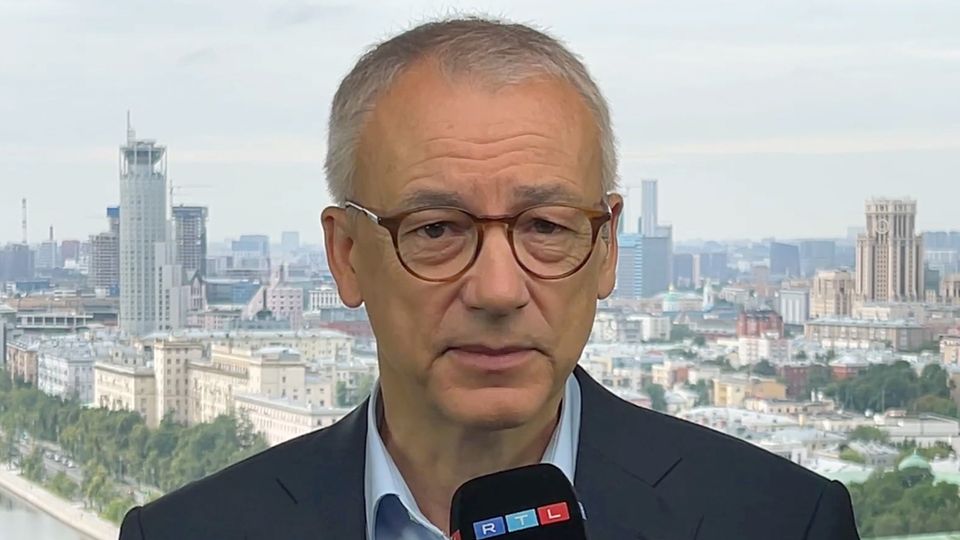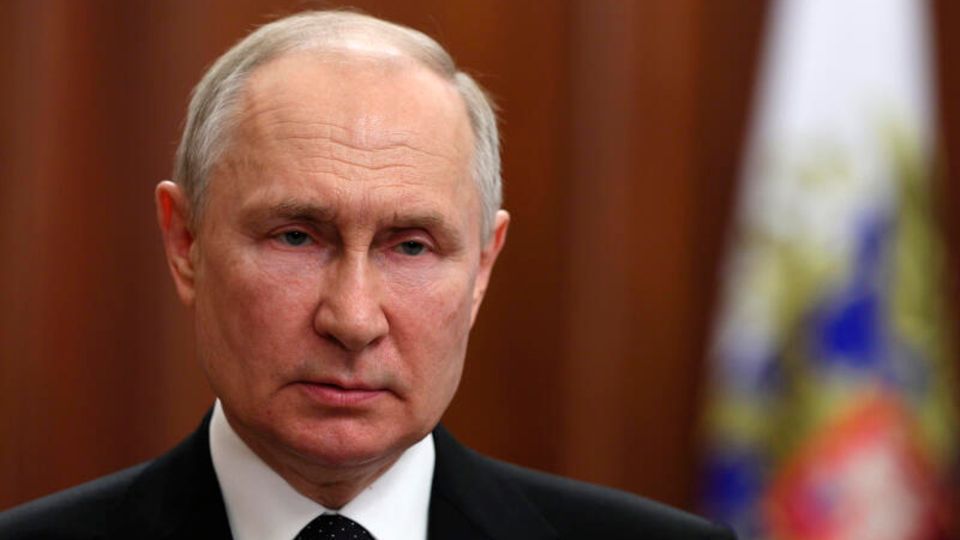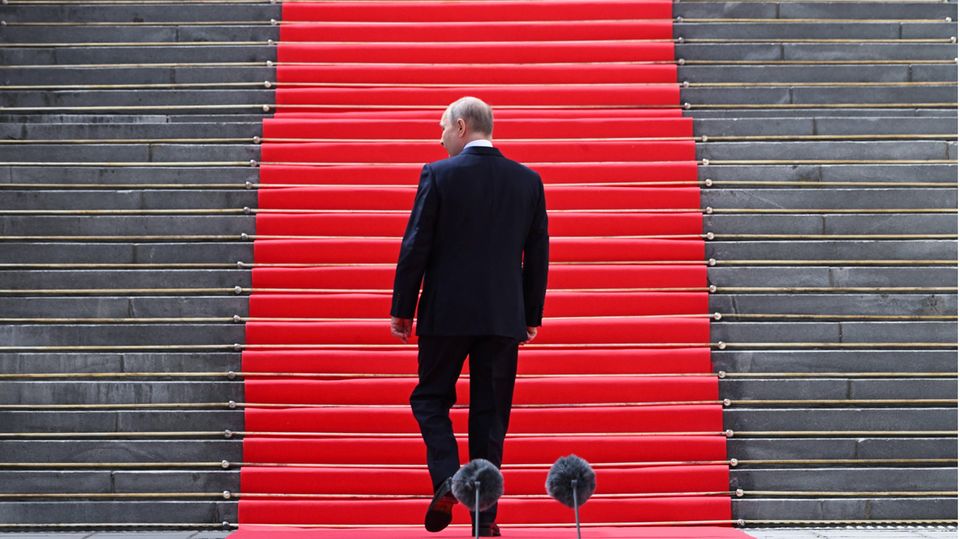TV debate on “Anne Will”
SPD politician dampens hopes that the Russian regime will fall soon: “The beginning of Putin’s end is wishful thinking”
Anne Will discusses the topic with her guests: “Power struggle in Russia – chance for Ukraine?”
© NDR / Wolfgang Borrs
A week after the uprising of the Wagner mercenaries under Yevgeny Prigozhin, “Anne Will” on Sunday evening revolved around the question: How weakened is Russia’s President Vladimir Putin?
By Ingo Scheel
“Power struggle in Russia – chance for Ukraine?” It said on Sunday evening on “Anne Will”. While Wagner boss Yevgeny Prigozhin is now said to be in exile in Belarus, Kremlin boss Vladimir is During the week, Putin was mainly concerned with damage limitation: Unusual closeness to the people was the order of the day. At the same time, there is talk of purges in the ranks of their own army, and possible supporters of Prigozhin are to be eliminated. The mercenaries’ 24-hour revolt raises questions: How deep are the cracks in Putin’s system of rule? Does a weakened president pose an even greater threat? What do the events in Russia mean for the war against Ukraine? And should Kiev now have the concrete prospect of joining NATO?
The following guests discussed this in the evening at “Anne Will”:
- Ralf Stegner (SPD), MP and member of the Foreign Affairs Committee
- Norbert Röttgen (CDU), MP and member of the Foreign Affairs Committee
- Claudia Major, political scientist, head of the security policy research group at the Stiftung Wissenschaft und Politik (SWP) in Berlin
- Irina Scherbakova, Russian historian, co-founder of the human rights organization Memorial
- Michael Thumann, foreign policy correspondent for Die Zeit in Moscow
Irina Scherbakowa made it clear right from the start that all discussions about possible cracks in Putin’s power structure are primarily based on hope: “How deep these cracks are is primarily speculation,” said the Russian historian, who lives in exile in Germany. Nevertheless, it should be noted that the fear and panic that was evident in Putin was appearing for the first time ever. An unexpected helplessness that spread in the face of Prigozhin going it alone: ”Putin tried to call him and he just didn’t answer.” While outward demonstrations of solidarity were taking place, the Russian population ran into the shops, according to Sherbakova, whose human rights organization Memorial is banned in Russia, and bought water, buckwheat and sugar – “a reaction that has been internalized for decades in the face of the danger.”
Norbert Röttgen rated Putin’s power system as “not the same anymore”. A mercenary general with “a few thousand soldiers” had caused the regime to shake, and Lukashenko became “a vassal to a dealmaker,” which shows one thing above all: “Putin is not invincible (…) the question of power is posed, and not in Putin’s favor answered.”
Ralf Stegner tried to take the wind out of his sails. “I’m amazed at how confident the judgment is here. Prigozhin’s people are mercenaries, mass murderers and ex-convicts. Such people at the controls of a nuclear power? A scary thought. I would be careful in judging what that would have meant. And Lukashenko is a puppet. I would be skeptical and don’t believe anything at first. The beginning of Putin’s end is wishful thinking.” Michael Thumann saw it similarly, Putin was not counted, he was not about to fall, but this “biggest invasion since World War II” was an episode that could be useful at a later point in time, just from the knowledge, with the memory at this moment: “Yes, it works!”
“It won’t be over in two or three years”
Claudia Major offered an even greater context when she brought up the keyword of the stability discussion. It is precisely this that one must free oneself from, Putin brings nothing but instability. In 2014, with regard to Crimea, there was no reaction to this with the necessary decisiveness, and in 2022 it was also not considered possible for a long time that Putin could start the war against Ukraine. Collateral or forecasts are often obsolete. While everyone was talking about the possibility of nuclear war, a dam was blown up instead. “We didn’t have that on our radar,” said Major, just as little as the temporary Wagner revolt.
It is important to adapt to this unpredictability, militarily, economically and politically. The decisive factor in changing politics in Russia: “Ukraine’s success”. However, you have to be prepared for “a very long phase of instability. It won’t be over in two or three years.” The change will not be easy anyway, a collapse is associated with great uncertainty, and the idea of a democratic Russia is a long way off anyway.

In the end, the question again came up: Does Germany support Ukraine sufficiently with the necessary weapons? While Stegner claimed that “we are doing what we can” and described the alleged “escalation phobia” as “reason”, Röttgen, who in the meantime accused Stegner of being taken in by Putin’s narrative, saw things completely differently. He “goes up the hat cord” because Germany is not doing enough. “War or peace” is the question here. The case of Prigozhin showed that if Ukraine were weaker, this would not have happened. The weakening of Russia is the only way.
Which, in view of the forthcoming NATO summit in Vilnius, brought Ukraine’s NATO membership back on the agenda. What is “no alternative” for Ukrainian President Volodymyr Zelenskyy, but impossible for Stegner in the medium term, was outlined by Claudia Major as a thoroughly feasible option, for example by first placing the free areas under NATO protection. The insistence on not even considering accession until after the war is just another reason for Russia to go on indefinitely.
rebellion in pictures
The Wagner troops are directed against the government in Moscow – chronicle of a canceled uprising
Sherbakova once again expressed her desperation that lessons might not be learned this time either: “I don’t see the logic. If you don’t do that now, what will be the consequences? People still don’t want to understand what war means for Europe .” The UN has failed, Europe’s old security system has been destroyed: “You have to have the courage to change security systems now.”



